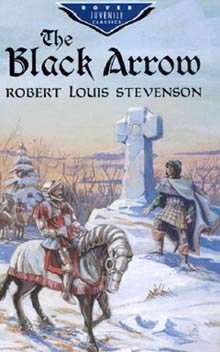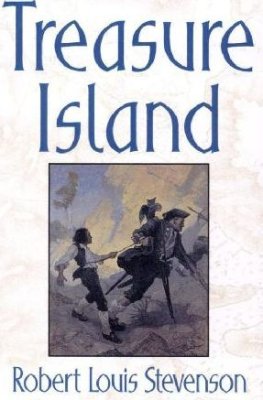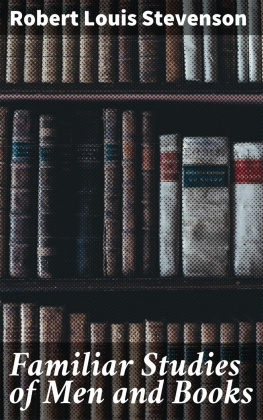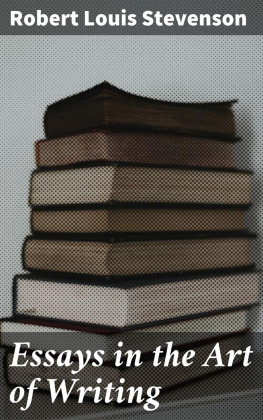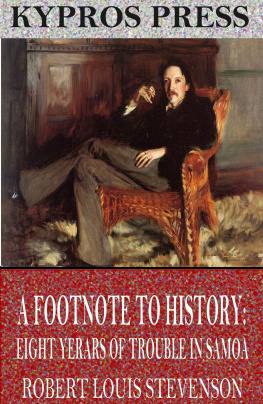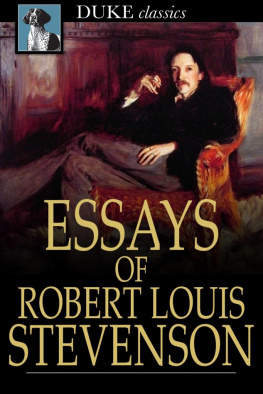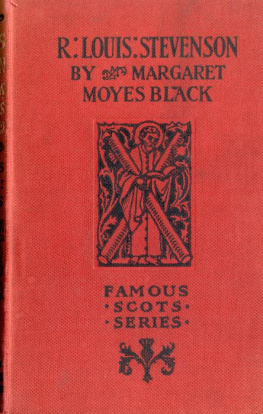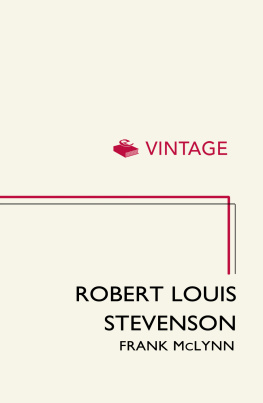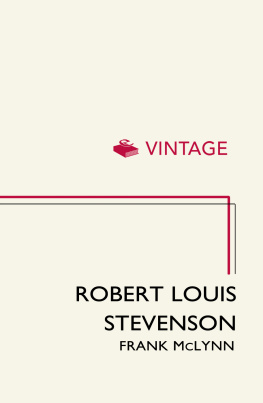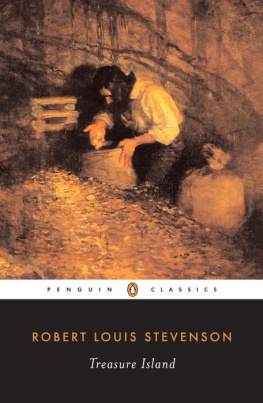Robert Stevenson - The Wrong Box
Here you can read online Robert Stevenson - The Wrong Box full text of the book (entire story) in english for free. Download pdf and epub, get meaning, cover and reviews about this ebook. genre: Prose. Description of the work, (preface) as well as reviews are available. Best literature library LitArk.com created for fans of good reading and offers a wide selection of genres:
Romance novel
Science fiction
Adventure
Detective
Science
History
Home and family
Prose
Art
Politics
Computer
Non-fiction
Religion
Business
Children
Humor
Choose a favorite category and find really read worthwhile books. Enjoy immersion in the world of imagination, feel the emotions of the characters or learn something new for yourself, make an fascinating discovery.

- Book:The Wrong Box
- Author:
- Genre:
- Rating:5 / 5
- Favourites:Add to favourites
- Your mark:
- 100
- 1
- 2
- 3
- 4
- 5
The Wrong Box: summary, description and annotation
We offer to read an annotation, description, summary or preface (depends on what the author of the book "The Wrong Box" wrote himself). If you haven't found the necessary information about the book — write in the comments, we will try to find it.
The Wrong Box — read online for free the complete book (whole text) full work
Below is the text of the book, divided by pages. System saving the place of the last page read, allows you to conveniently read the book "The Wrong Box" online for free, without having to search again every time where you left off. Put a bookmark, and you can go to the page where you finished reading at any time.
Font size:
Interval:
Bookmark:
The Wrong Box
by Robert Louis Stevenson and Lloyd Osbourne
PREFACE
'Nothing like a little judicious levity,' says Michael Finsbury in the text: nor can any better excuse be found for the volume in the reader's hand. The authors can but add that one of them is old enough to be ashamed of himself, and the other young enough to learn better.
R. L. S. L. O.
CHAPTER I.
In Which Morris Suspects
How very little does the amateur, dwelling at home at ease, comprehend the labours and perils of the author, and, when he smilingly skims the surface of a work of fiction, how little does he consider the hours of toil, consultation of authorities, researches in the Bodleian, correspondence with learned and illegible Germans--in one word, the vast scaffolding that was first built up and then knocked down, to while away an hour for him in a railway train! Thus I might begin this tale with a biography of Tonti--birthplace, parentage, genius probably inherited from his mother, remarkable instance of precocity, etc--and a complete treatise on the system to which he bequeathed his name. The material is all beside me in a pigeon-hole, but I scorn to appear vainglorious. Tonti is dead, and I never saw anyone who even pretended to regret him; and, as for the tontine system, a word will suffice for all the purposes of this unvarnished narrative.
A number of sprightly youths (the more the merrier) put up a certain sum of money, which is then funded in a pool under trustees; coming on for a century later, the proceeds are fluttered for a moment in the face of the last survivor, who is probably deaf, so that he cannot even hear of his success--and who is certainly dying, so that he might just as well have lost. The peculiar poetry and even humour of the scheme is now apparent, since it is one by which nobody concerned can possibly profit; but its fine, sportsmanlike character endeared it to our grandparents.
When Joseph Finsbury and his brother Masterman were little lads in white-frilled trousers, their father--a well-to-do merchant in Cheapside--caused them to join a small but rich tontine of seven-and-thirty lives. A thousand pounds was the entrance fee; and Joseph Finsbury can remember to this day the visit to the lawyer's, where the members of the tontine--all children like himself--were assembled together, and sat in turn in the big office chair, and signed their names with the assistance of a kind old gentleman in spectacles and Wellington boots. He remembers playing with the children afterwards on the lawn at the back of the lawyer's house, and a battle-royal that he had with a brother tontiner who had kicked his shins. The sound of war called forth the lawyer from where he was dispensing cake and wine to the assembled parents in the office, and the combatants were separated, and Joseph's spirit (for he was the smaller of the two) commended by the gentleman in the Wellington boots, who vowed he had been just such another at the same age. Joseph wondered to himself if he had worn at that time little Wellingtons and a little bald head, and when, in bed at night, he grew tired of telling himself stories of sea-fights, he used to dress himself up as the old gentleman, and entertain other little boys and girls with cake and wine.
In the year 1840 the thirty-seven were all alive; in 1850 their number had decreased by six; in 1856 and 1857 business was more lively, for the Crimea and the Mutiny carried off no less than nine. There remained in 1870 but five of the original members, and at the date of my story, including the two Finsburys, but three.
By this time Masterman was in his seventy-third year; he had long complained of the effects of age, had long since retired from business, and now lived in absolute seclusion under the roof of his son Michael, the well-known solicitor. Joseph, on the other hand, was still up and about, and still presented but a semi-venerable figure on the streets in which he loved to wander. This was the more to be deplored because Masterman had led (even to the least particular) a model British life. Industry, regularity, respectability, and a preference for the four per cents are understood to be the very foundations of a green old age. All these Masterman had eminently displayed, and here he was, ab agendo, at seventy-three; while Joseph, barely two years younger, and in the most excellent preservation, had disgraced himself through life by idleness and eccentricity. Embarked in the leather trade, he had early wearied of business, for which he was supposed to have small parts. A taste for general information, not promptly checked, had soon begun to sap his manhood. There is no passion more debilitating to the mind, unless, perhaps, it be that itch of public speaking which it not infrequently accompanies or begets. The two were conjoined in the case of Joseph; the acute stage of this double malady, that in which the patient delivers gratuitous lectures, soon declared itself with severity, and not many years had passed over his head before he would have travelled thirty miles to address an infant school. He was no student; his reading was confined to elementary textbooks and the daily papers; he did not even fly as high as cyclopedias; life, he would say, was his volume. His lectures were not meant, he would declare, for college professors; they were addressed direct to 'the great heart of the people', and the heart of the people must certainly be sounder than its head, for his lucubrations were received with favour. That entitled 'How to Live Cheerfully on Forty Pounds a Year', created a sensation among the unemployed. 'Education: Its Aims, Objects, Purposes, and Desirability', gained him the respect of the shallow-minded. As for his celebrated essay on 'Life Insurance Regarded in its Relation to the Masses', read before the Working Men's Mutual Improvement Society, Isle of Dogs, it was received with a 'literal ovation' by an unintelligent audience of both sexes, and so marked was the effect that he was next year elected honorary president of the institution, an office of less than no emolument--since the holder was expected to come down with a donation--but one which highly satisfied his self-esteem.
While Joseph was thus building himself up a reputation among the more cultivated portion of the ignorant, his domestic life was suddenly overwhelmed by orphans. The death of his younger brother Jacob saddled him with the charge of two boys, Morris and John; and in the course of the same year his family was still further swelled by the addition of a little girl, the daughter of John Henry Hazeltine, Esq., a gentleman of small property and fewer friends. He had met Joseph only once, at a lecture-hall in Holloway; but from that formative experience he returned home to make a new will, and consign his daughter and her fortune to the lecturer. Joseph had a kindly disposition; and yet it was not without reluctance that he accepted this new responsibility, advertised for a nurse, and purchased a second-hand perambulator. Morris and John he made more readily welcome; not so much because of the tie of consanguinity as because the leather business (in which he hastened to invest their fortune of thirty thousand pounds) had recently exhibited inexplicable symptoms of decline. A young but capable Scot was chosen as manager to the enterprise, and the cares of business never again afflicted Joseph Finsbury. Leaving his charges in the hands of the capable Scot (who was married), he began his extensive travels on the Continent and in Asia Minor.
With a polyglot Testament in one hand and a phrase-book in the other, he groped his way among the speakers of eleven European languages. The first of these guides is hardly applicable to the purposes of the philosophic traveller, and even the second is designed more expressly for the tourist than for the expert in life. But he pressed interpreters into his service--whenever he could get their services for nothing--and by one means and another filled many notebooks with the results of his researches.
Font size:
Interval:
Bookmark:
Similar books «The Wrong Box»
Look at similar books to The Wrong Box. We have selected literature similar in name and meaning in the hope of providing readers with more options to find new, interesting, not yet read works.
Discussion, reviews of the book The Wrong Box and just readers' own opinions. Leave your comments, write what you think about the work, its meaning or the main characters. Specify what exactly you liked and what you didn't like, and why you think so.

